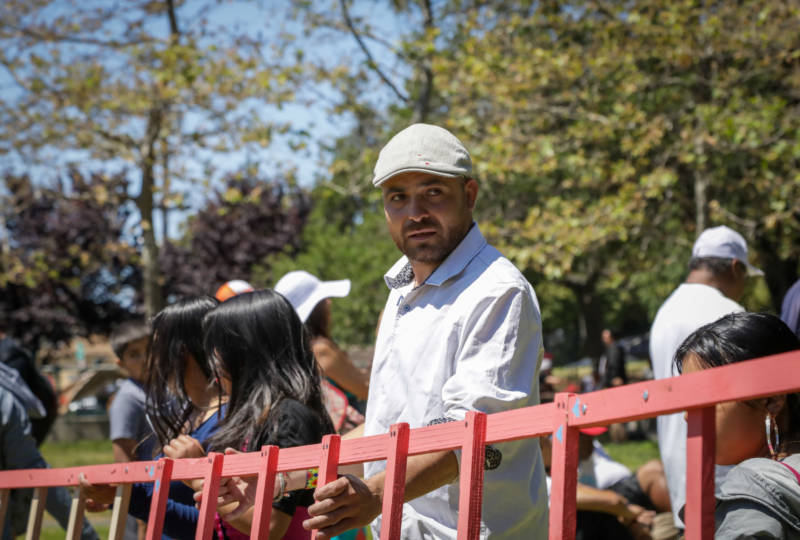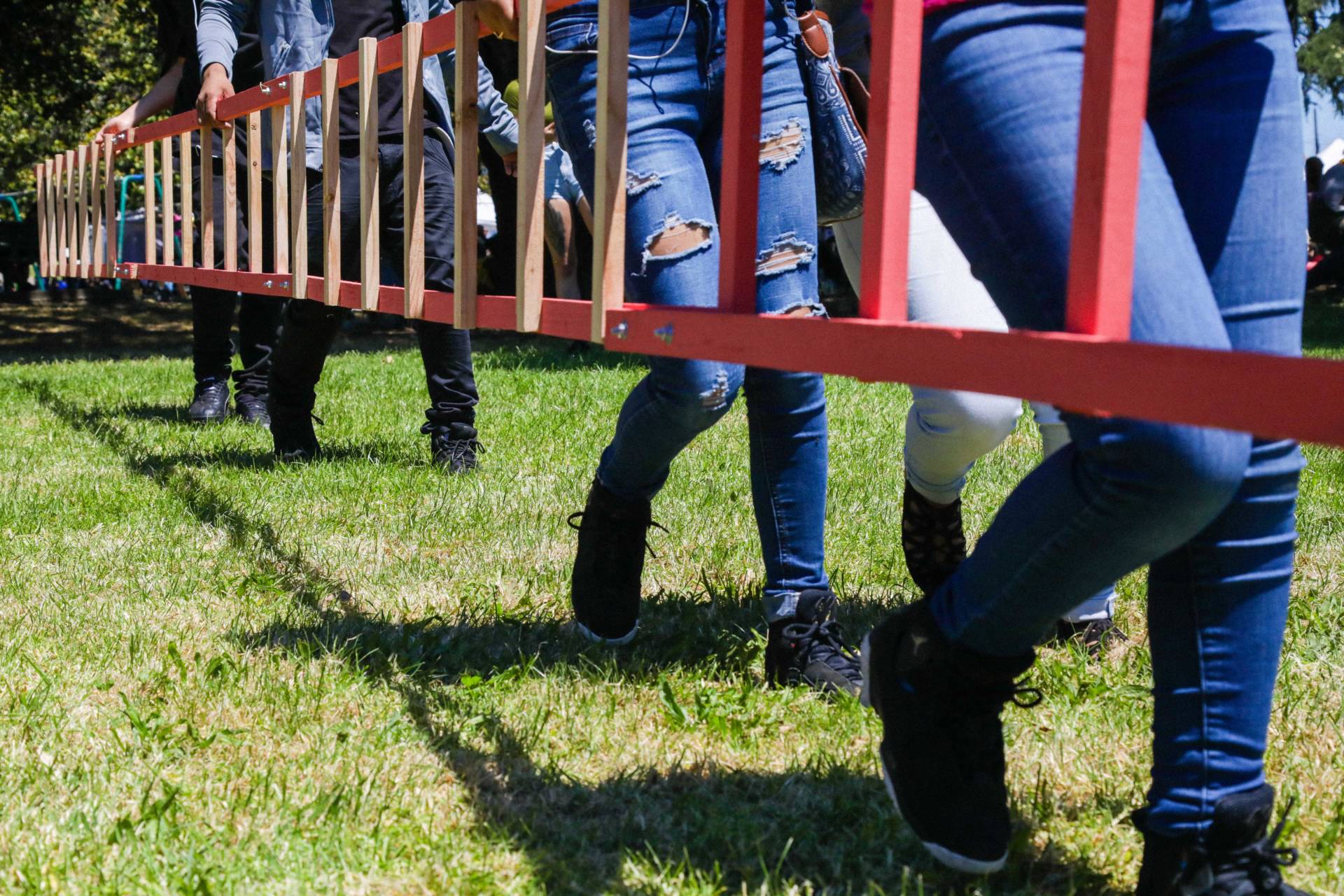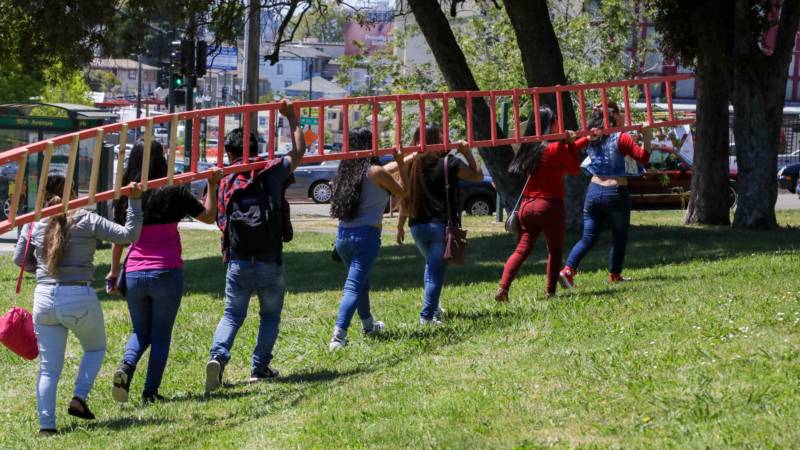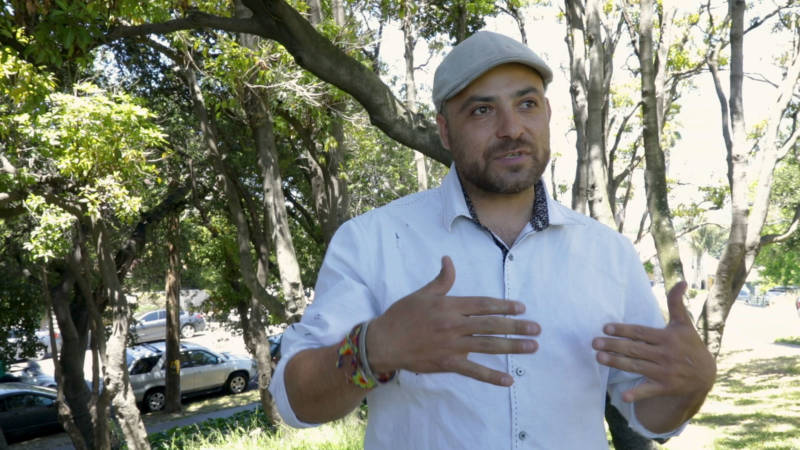The scariest part, Eric tells me, wasn’t being held in a youth detention center for 23 days after crossing into the United States alone. It was taking the bus across the border from Guatemala into Mexico, he says, with his money sewn into his underwear.
It’s a summery afternoon at San Antonio Park in East Oakland, where hundreds have gathered for the annual Malcolm X Jazz Festival. Eric and a group of about ten other indigenous Mayan migrant youth from Guatemala sit shyly in a quiet, grassy corner of the park, waiting for the perfect time to start their performance — which is not on the official schedule. Meanwhile, Eric recounts how he came to be a student at Fremont High School. His first language is Mam, a Mayan language, but today he speaks in slow Spanish, which is then translated into English for me by his artist mentor Caleb Duarte.
Eric recalls being questioned by Mexican border police when leaving Guatemala, unsuccessfully attempting to convince them that he was from Oaxaca and traveling in search of work, then narrowly escaping detainment by staying on the bus when they sent him back to grab his bag. Things got easier, he says, once he made it to the safe house in Tijuana, where he tried a burrito for the first time. Two days later, he waited for the border patrol to pass, then used a massive aluminum ladder to surmount the wall into the United States. But he hurt his leg on the way down, he recalls, and five minutes into walking through the desert, he looked up from the hot ground to find five border patrol officers surrounding him. After 23 days at a detention center in San Diego, he says, he was finally able to board a flight to San Francisco to meet his uncle and settle in Fremont.

The other youth sit listening, unfazed. Most are from the municipality of Huehuetenango in the highlands of western Guatemala, and have similar stories of fleeing their war-torn home to seek a safer life in the United States. One teenaged girl shares that she had been detained for seven months after crossing alone.
It’s common practice to send minors across the border unaccompanied, because being alone affords them better potential legal protections. But according to Duarte, several in the group are still awaiting legal proceedings to officially determine if they will be granted asylum.





